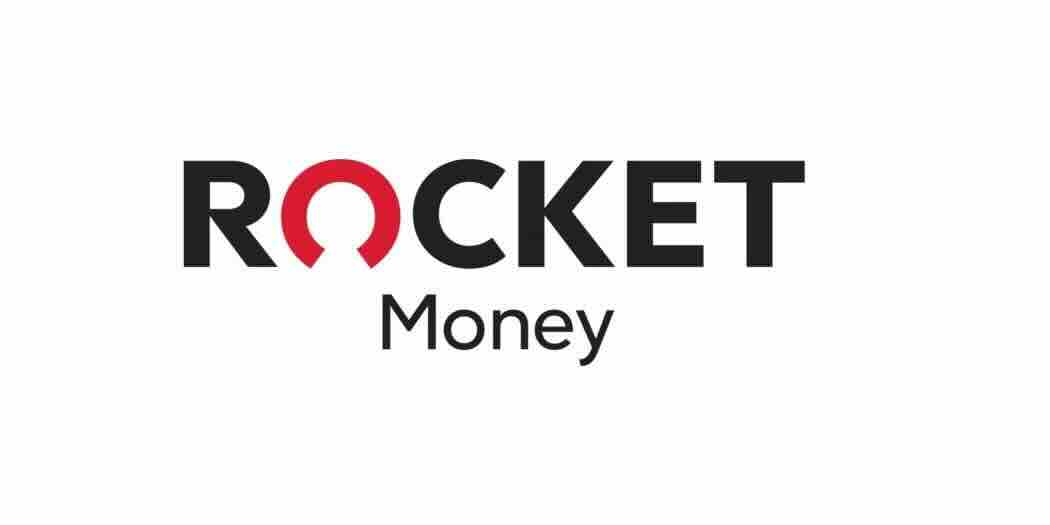The Controversial Reputation of ZeroHedge: A Critical Analysis

ZeroHedge is a popular financial news and analysis website that has gained a reputation for its controversial reporting and opinions. However, its credibility has been called into question by some critics who accuse the site of spreading misinformation and conspiracy theories. In this analysis, we will explore the controversies surrounding ZeroHedge and examine its credibility as a source of financial news and analysis.
The owner of ZeroHedge is ABC Media, Ltd. Former investment banker and capital-markets trader Daniel Ivandjiiski, born in Bulgaria and now resides in the United States, is the founder and chief editor of ZeroHedge. ZeroHedge was started in January 2009 by Ivandjiiski, now the company's publisher and chief editor. Tim Backshall and Colin Lokey are the other two men behind ZeroHedge in addition to Ivandjiiski. Backshall was a former Credit Suisse chief strategist, while Lokey was a former ZeroHedge blogger.
A far-right libertarian financial blog and news aggregation called ZeroHedge. Because of its devotion to the Austrian School of Economics and credit cycles, it is renowned for its pessimistic investing outlook and analysis. As time went on, ZeroHedge began publishing non-financial political information, such as conspiracy theories and outlandish arguments supporting extreme, alt-right, and pro-Russian viewpoints. Many global social media networks have blocked ZeroHedge's website due to its non-financial criticism, albeit its 2019 Facebook ban and 2020 Twitter restriction were eventually lifted.
Introduction to ZeroHedge and its reputation
ZeroHedge is a financial news and analysis website that was founded in 2009. The site has gained a large following due to its alternative perspective on financial news and its willingness to report on controversial topics. However, this reputation has also led to criticism from some who accuse the site of spreading misinformation and conspiracy theories. In this analysis, we will examine the controversies surrounding ZeroHedge and evaluate its credibility as a source of financial news and analysis.
ZeroHedge has gained a reputation for being a contrarian voice in the financial news world. The site often takes a critical view of mainstream financial institutions and policies, and is not afraid to report on controversial topics. This has led to a large following among those who are skeptical of traditional financial news sources. However, this reputation has also led to criticism from some who accuse the site of spreading misinformation and conspiracy theories. Some have even gone so far as to call the site a purveyor of fake news. In order to evaluate the credibility of ZeroHedge, it is important to examine the controversies surrounding the site and the evidence for and against these claims.
Launched in 2009, ZeroHedge is a financial blog and news aggregation. Because of its devotion to the Austrian School of Economics and credit cycles, it is renowned for its pessimistic investing outlook and analysis. In time, Zero Hedge broadened its focus to non-financial political discourse, promoting positions on the radical right, the alt-right, and Russia. Some international social media platforms have blocked ZeroHedge as a result of its non-financial criticism.
Controversies surrounding ZeroHedge's reporting
ZeroHedge has been accused of spreading misinformation and conspiracy theories, particularly in relation to financial news. Some critics have pointed to the site's tendency to publish articles that are not backed up by credible sources or that rely on anonymous sources. Additionally, ZeroHedge has been accused of promoting a negative and alarmist view of the economy, which some argue can contribute to market instability. Despite these criticisms, the site continues to have a large following and remains a popular source of alternative financial news and analysis.
One of the most notable controversies surrounding ZeroHedge's reporting is its tendency to publish articles that are not backed up by credible sources. In some cases, the site has been accused of spreading conspiracy theories and false information. For example, in 2020, ZeroHedge was temporarily banned from Twitter for violating the platform's policies on misinformation. The site had published an article that suggested the coronavirus was a bioweapon created in a Chinese lab, a claim that has been widely debunked by experts.
ZeroHedge has been charged of disseminating discredited, fraudulent, and inaccurate information that regularly disparages the left. It has been labeled as a conspiracy website that favors the extreme right and spreads disinformation. ZeroHedge was declared to not be a reputable source by Wikipedia in 2020. U.S. intelligence agencies charged ZeroHedge in February 2022 with boosting Kremlin propaganda directed against Ukrainians and following instructions from Russian operatives. The allegations were refuted by ZeroHedge, which asserted that it works to "publish a wide range of viewpoints that cover both sides of a given subject."
Criticisms of ZeroHedge's editorial stance
One of the main criticisms of ZeroHedge is its tendency to promote a negative and alarmist view of the economy. Some argue that this can contribute to market instability and even cause panic among investors. Additionally, the site has been accused of spreading misinformation and conspiracy theories, particularly in relation to financial news. Critics have pointed to the site's reliance on anonymous sources and lack of credible evidence to support some of its claims. These controversies have led some to question the credibility of ZeroHedge as a source of financial news and analysis.
Another criticism of ZeroHedge is its editorial stance, which some argue is biased towards a libertarian and anti-government perspective. This can be seen in the site's frequent criticism of central banks and government policies, as well as its promotion of alternative economic theories such as Austrian economics. While some readers appreciate this perspective, others feel that it can be overly simplistic and lacking in nuance. Overall, the criticisms of ZeroHedge's editorial stance and credibility highlight the importance of being critical and discerning when consuming financial news and analysis.
Ad Fontes Media classifies Zero Hedge as Skewed Right and Unreliable, Problematic in terms of trustworthiness. As a result of its propagation of inaccurate, misleading, and disproven information as well as its severe right-wing leaning and conspiracy theories, Zero Hedge's reliability has been questioned by numerous sources.
Analysis of ZeroHedge's accuracy and reliability
The accuracy and reliability of ZeroHedge have been the subject of much debate and criticism. While the site has been known to break news stories before mainstream media outlets, its reporting has also been accused of being sensationalist and lacking in credible sources. Some have even accused the site of spreading conspiracy theories and misinformation. As a result, it is important for readers to approach ZeroHedge's reporting with a critical eye and to seek out additional sources to verify any information presented.
One of the main criticisms of ZeroHedge is its tendency to publish articles with sensational headlines that may not accurately reflect the content of the article. Additionally, the site has been accused of cherry-picking data and sources to support its narratives, rather than presenting a balanced view of the facts. Some have also raised concerns about the site's anonymous authors and lack of editorial oversight, which can make it difficult to verify the accuracy of its reporting.
According to some sources, ZeroHedge is a Russian Trojan horse. Seth Hettena explored the mysterious motivations behind pro-Russian conspiracy websites like ZeroHedge in a piece he wrote for Longform.org in 2020. Whether Zero Hedge is a Russian Trojan horse was the subject of a Pew Research report. In an article on the subject that appeared in The New Republic, the author was accused of committing a crime in Bulgaria by the father of Zero Hedge's founder. In addition, the US charged Zero Hedge in 2022 with disseminating Russian propaganda, alleging that it had published items from Moscow-controlled media distributed by outlets and individuals unaware of their connections to Russian intelligence. The charges were refuted by Zero Hedge, which said that they work to "publish a wide spectrum of viewpoints that cover both sides of a given subject."
Conclusion and recommendations for readers
In conclusion, while ZeroHedge has been known to break news stories before mainstream media outlets, its reporting has also been the subject of much controversy and criticism. As a reader, it is important to approach the site's reporting with a critical eye and to seek out additional sources to verify any information presented. It is also recommended to be aware of the site's potential biases and to consider the credibility of its sources. By taking these steps, readers can make informed decisions about the information they consume and avoid being misled by sensationalist or inaccurate reporting.
To ensure that you are getting accurate and reliable information, it is recommended to cross-check any news or information presented on ZeroHedge with other reputable sources. Additionally, it is important to be aware of the potential biases of the site and its contributors. While ZeroHedge may provide valuable insights and perspectives, it is important to approach its reporting with a critical eye and to verify any claims made. By doing so, readers can make informed decisions and avoid being misled by sensationalist or inaccurate reporting.
FAQ
Who is the man behind ZeroHedge?
Known for its pessimistic investing analysis and forecasts, ZeroHedge is a libertarian financial blog on the extreme right. Former ZeroHedge blogger Colin Lokey finally revealed the site's owners in 2016, ending years of conjecture among the financial community about the site's authors. According to Lokey, the other two members of the ZeroHedge team are the former Bulgarian hedge fund analyst Daniel Ivandjiiski and the credit derivatives expert Tim Backshall.
Ivandjiiski, suspected of being the site's creator for some time, worked for a hedge fund until he was banned from the industry in 2008. However, his claims about Goldman Sachs alums being a shadowy group controlling US policy have gained him notoriety. In the field of credit derivatives, Backshall is a household name. Lokey claims to have worked at ZeroHedge for over a year, receiving $6,000 monthly plus a $50,000 bonus for more than $100,000 in salary and bonuses in a single year. It has been said that ZeroHedge is a platform for the furious white guys of the alt-right to air their racist, conspiratorial views. The site is generally pessimistic and skeptical of the establishment, and it combines in-depth financial analysis with sensationalist headlines. ZeroHedge's reputation hasn't stopped it from being read by serious traders.
Did the US accuse ZeroHedge of spreading Russian propaganda?
The United States did indict Zero Hedge for promoting Russian propaganda in February of 2022. US intelligence agencies accused ZeroHedge of spreading Kremlin propaganda and publishing stories written by Moscow's state media that were then shared by media outlets and individuals who did not realize the materials were from Russian intelligence. However, the officials did not claim that Zero Hedge had any knowledge of ties to Russian intelligence agencies, nor did they suggest any direct relationship between the website and Moscow. In response, Zero Hedge said it "publishes a wide range of viewpoints that cover both sides of a given subject" and refuted the allegations.

Frequency Asked Questions (F.A.Q)
Did Facebook ban ZeroHedge?
Facebook temporarily banned content from the anti-establishment financial blog Zero Hedge in March 2019. However, Facebook later claimed that the ban was a "mistake" caused by an automation error designed to detect spam.
Facebook reversed its decision to block users from sharing content from Zero Hedge after a backlash from figures including Nigel Farage, Donald Trump Jr., and Paul Joseph Watson. Farage claimed that Facebook's ban on Zero Hedge violated civil liberties. It is unclear which content caused the ban on Zero Hedge material on Facebook's website. It is worth noting that Zero Hedge's non-financial commentary has led to multiple site bans by global social media platforms.
Did Google ban Zerohedge?
Yes, Google banned Zero Hedge from using its ad platform in June 2020 due to racist comments made by its readers in the comments section. However, it is worth noting that Zero Hedge was not permanently banned from using Google's ad platform, and it could continue to get revenue from Google ads if it removed the comments. In addition, it is unclear if Google has banned Zero Hedge from any other services.
What was the racist content that led to the ban?
The exact racist content that led to the ban of Zero Hedge from Google's ad platform is unclear. However, Google stated that the ban was due to endemic racist commenters across Zero Hedge's articles. In addition, it is worth noting that the Center for Countering Digital Hate called out several companies for hosting ads on sites promoting unsubstantiated or false claims about recent Black Lives Matter protests, citing a Zero Hedge article calling and promoting "chickenpox parties" for catching the novel coronavirus.
Zerohedge ban list as of Apr 2023
Zero Hedge has been banned from multiple global social media platforms due to its non-financial commentary, including conspiracy theories and fringe rhetoric advancing radical right, alt-right, and pro-Russia positions. The following is a list of sites and countries that have banned Zero Hedge:
- Facebook: Zero Hedge was banned from Facebook in 2019, but the ban was later lifted.
- Twitter: Zero Hedge's Twitter account was permanently suspended in January 2020 for violating its platform manipulation policy.
- Google Ads: Zero Hedge was banned from using Google Ads in June 2020 due to racist comments posted by its readers in the comments section.
- Australia: Australian telecom company Telstra temporarily denied access to Zero Hedge and other websites in March 2019 due to the Christchurch mosque shootings.
It is worth noting that Zero Hedge's non-financial commentary has led to multiple site bans by global social media platforms, although its bans from Facebook, Twitter, and Google Ads are the most notable ones.





